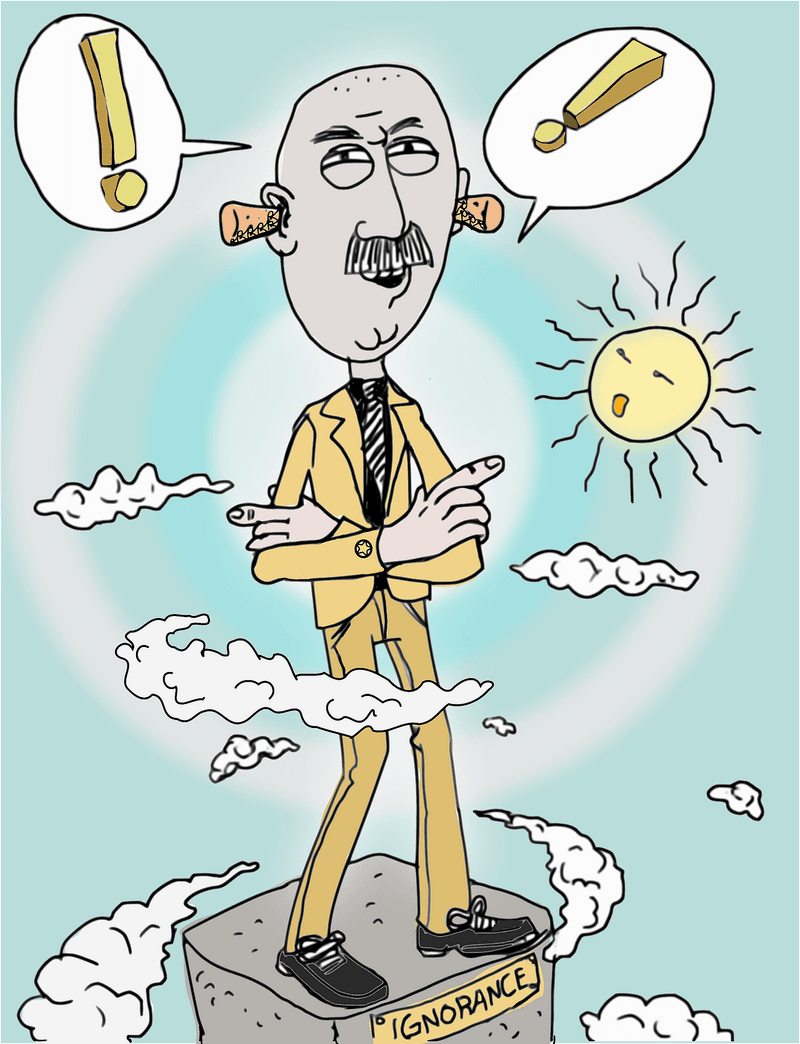Highly intelligent people often possess a distinct perspective on life, shaped by their unique cognitive abilities. This perspective makes them especially intolerant to certain behaviors and situations.
From encountering people who communicate lazily to dealing with overly complicated processes, their patience runs thin for things that others might overlook.
This blog post explores 15 specific things that such individuals find particularly vexing, each shedding light on the nuanced frustrations of the highly intelligent.
1. Unclear or Lazy Communication
Highly intelligent individuals value clarity and efficiency in communication. When faced with unclear or lazy communication, they often feel frustrated. This is because they prefer getting to the point rather than deciphering vague messages.
A lack of effort in conveying information can be perceived as disrespectful or dismissive, which further aggravates them. Such individuals appreciate conversations that stimulate thought and encourage understanding.
Engaging in meaningful dialogue is not only fulfilling but also mentally stimulating, which is why they avoid exchanges that lack substance or clarity.
2. People Who Talk But Never Listen
Listening is a crucial component of effective communication, yet many people overlook its importance. Highly intelligent people have no patience for those who dominate conversations without considering others’ perspectives.
They find it exhausting to engage with individuals who are more interested in hearing their own voice than in understanding others. This one-sided interaction often leads to frustration and a sense of being undervalued.
For them, meaningful conversations are a two-way street, where both parties feel heard and respected, fostering mutual growth and learning.
3. People Who Fake Expertise to Sound Smart
Pretending to be an expert when one is not can be particularly irksome to highly intelligent people. They value authenticity and are adept at discerning genuine knowledge from mere showmanship.
Such behavior not only undermines trust but also diminishes the credibility of true experts. Intelligent individuals prefer engaging with those who are honest about their knowledge and willing to learn.
By fostering an environment of honesty and continuous learning, they create opportunities for authentic and meaningful exchanges, which are far more rewarding.
4. Overcomplicated Processes for Simple Tasks
Complexity for its own sake is a major annoyance for highly intelligent individuals. They have little patience for overcomplicated processes that waste time and resources.
Such unnecessary complexity often obstructs productivity and creates frustration. Intelligent individuals prefer streamlined approaches that achieve results efficiently.
They believe that simplicity is often the key to solving problems effectively, and they advocate for clear, straightforward methods that cut through the clutter.
5. Redundant Meetings
For highly intelligent people, time is a precious commodity, and wasting it in redundant meetings is particularly frustrating. They have little patience for meetings that lack clear objectives or outcomes.
Such gatherings often result in unnecessary discussions that could have been resolved through a simple email or a brief conversation.
For them, effective meetings are concise and purposeful, driving action and decisions rather than endless deliberations. They advocate for minimizing time spent in meetings to focus on more productive tasks.
6. Micromanagement
Micromanagement is a significant source of irritation for highly intelligent individuals. They value autonomy and trust in their abilities to complete tasks without constant oversight.
Excessive supervision can stifle creativity and hinder productivity, leading to frustration and dissatisfaction. Intelligent people prefer environments where they are empowered to make decisions and take ownership of their work.
By fostering trust and encouraging independence, they thrive and contribute more effectively to their teams and organizations.
7. Unnecessary Bureaucracy
Bureaucracy, with its layers of red tape, can be a significant source of frustration for highly intelligent individuals. They find it exasperating to navigate through unnecessary procedures that delay progress.
Such inefficiencies are seen as obstacles to achieving goals and can lead to a loss of motivation. Intelligent people advocate for reducing bureaucracy to streamline processes and encourage innovation.
By promoting efficiency and cutting unnecessary steps, they aim to create systems that are more responsive and effective.
8. Groupthink
Groupthink can be particularly frustrating for highly intelligent people, as it stifles creativity and independent thought. They have little patience for environments where dissenting opinions are discouraged.
Conformity for the sake of harmony often leads to suboptimal decisions and missed opportunities for innovation. Intelligent individuals value diverse perspectives and encourage open dialogue to explore different ideas.
By challenging the status quo, they promote environments where creativity and critical thinking are nurtured and celebrated.
9. Lack of Critical Thinking
Highly intelligent people have a strong distaste for situations where critical thinking is absent. They value the ability to question assumptions and analyze information rigorously.
A lack of critical thinking can lead to poor decision-making and perpetuation of misinformation. Intelligent individuals encourage others to think independently and challenge conventional wisdom.
By fostering an environment where questioning and analysis are encouraged, they hope to inspire more thoughtful and informed discussions.
10. Dishonesty
Integrity is a core value for highly intelligent individuals, and dishonesty is something they cannot tolerate. They value trust and transparency in their relationships and interactions.
Dishonesty undermines trust and can have long-lasting negative effects on personal and professional relationships. Intelligent people prefer environments where honesty is upheld and deceit is discouraged.
By promoting transparency and integrity, they aim to build strong, trust-based relationships that are mutually rewarding and enduring.
11. Willful Ignorance
Willful ignorance, the refusal to acknowledge or learn new information, is particularly irksome to highly intelligent people. They value intellectual curiosity and continuous learning.
Refusing to engage with new ideas or information is seen as a barrier to growth and progress. Intelligent individuals encourage open-mindedness and a willingness to explore diverse perspectives.
By promoting a culture of learning, they hope to inspire others to embrace knowledge and expand their horizons.
12. Inconsiderate Behavior
Inconsiderate behavior, such as rudeness or lack of empathy, is particularly frustrating for highly intelligent individuals. They value respect and consideration for others’ feelings and experiences.
Such behavior can create a toxic environment and hinder positive interactions. Intelligent people advocate for kindness and understanding in daily interactions.
By promoting empathy and respect, they aim to foster a more harmonious and collaborative environment, where everyone feels valued and appreciated.
13. Resistance to Change
Resistance to change can be a significant source of frustration for highly intelligent individuals. They value adaptability and openness to new ideas and innovations.
Clinging to outdated methods and resisting progress can hinder growth and improvement. Intelligent people encourage embracing change as an opportunity for development and enhancement.
By fostering a culture that welcomes innovation, they aim to create environments that are dynamic and forward-thinking.
14. Lack of Personal Accountability
Personal accountability is a trait highly valued by intelligent individuals. They have little patience for those who avoid taking responsibility for their actions.
Shifting blame and evading accountability can lead to unresolved issues and hinder personal and professional growth. Intelligent people promote a culture of ownership and responsibility.
By encouraging accountability, they aim to create environments where individuals learn from their mistakes and contribute positively to their teams and communities.
15. Inefficiency
Inefficiency is a major annoyance for highly intelligent individuals, as it wastes time and resources. They value streamlined processes that maximize productivity and effectiveness.
Encounters with inefficiency can lead to frustration and a sense of wasted potential. Intelligent people advocate for optimizing processes and eliminating unnecessary steps.
By promoting efficiency, they aim to create environments where time and effort are utilized effectively, leading to better outcomes and satisfaction.















